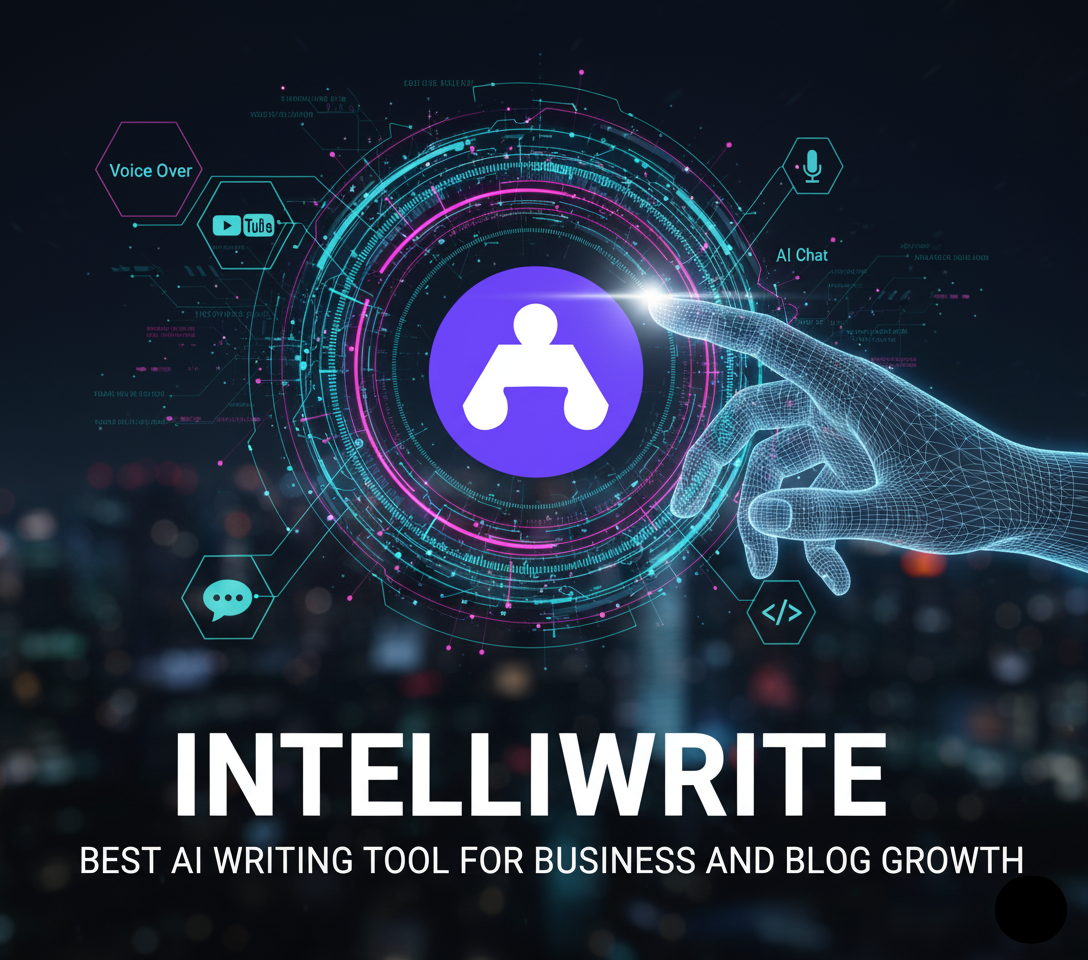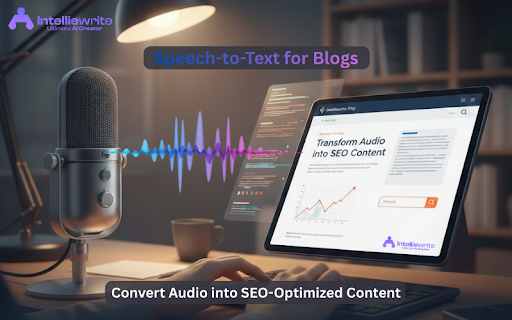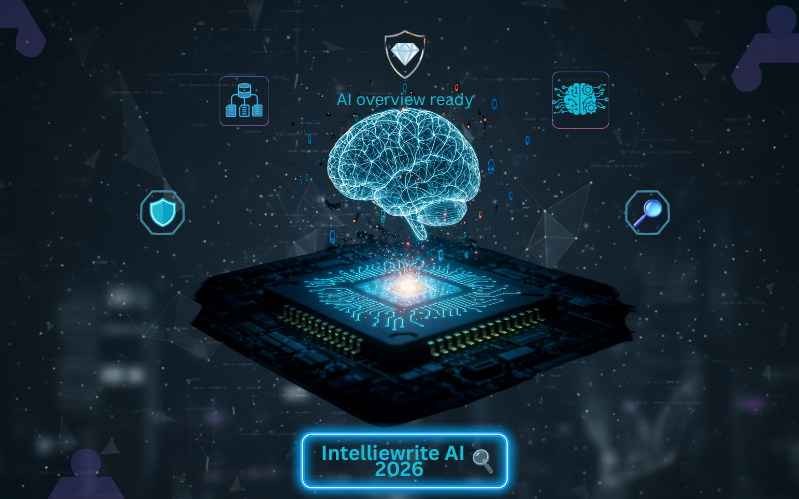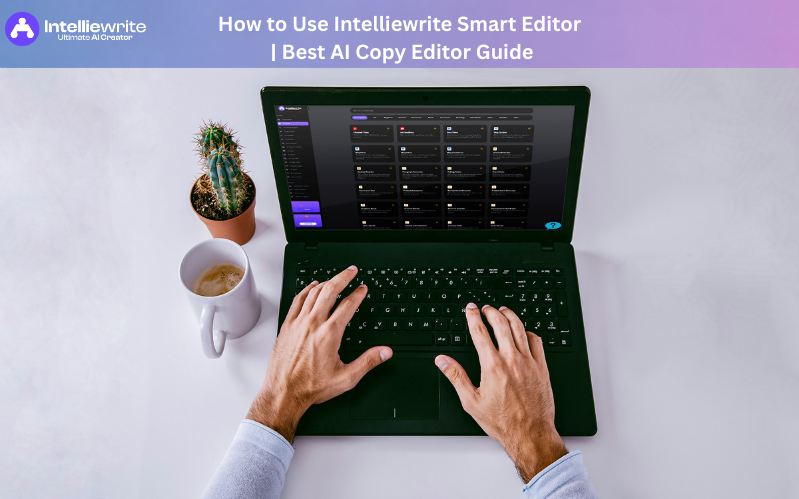
AI's Impact on Content Writers: Adapting Skills for a New Era | Intelliewrite
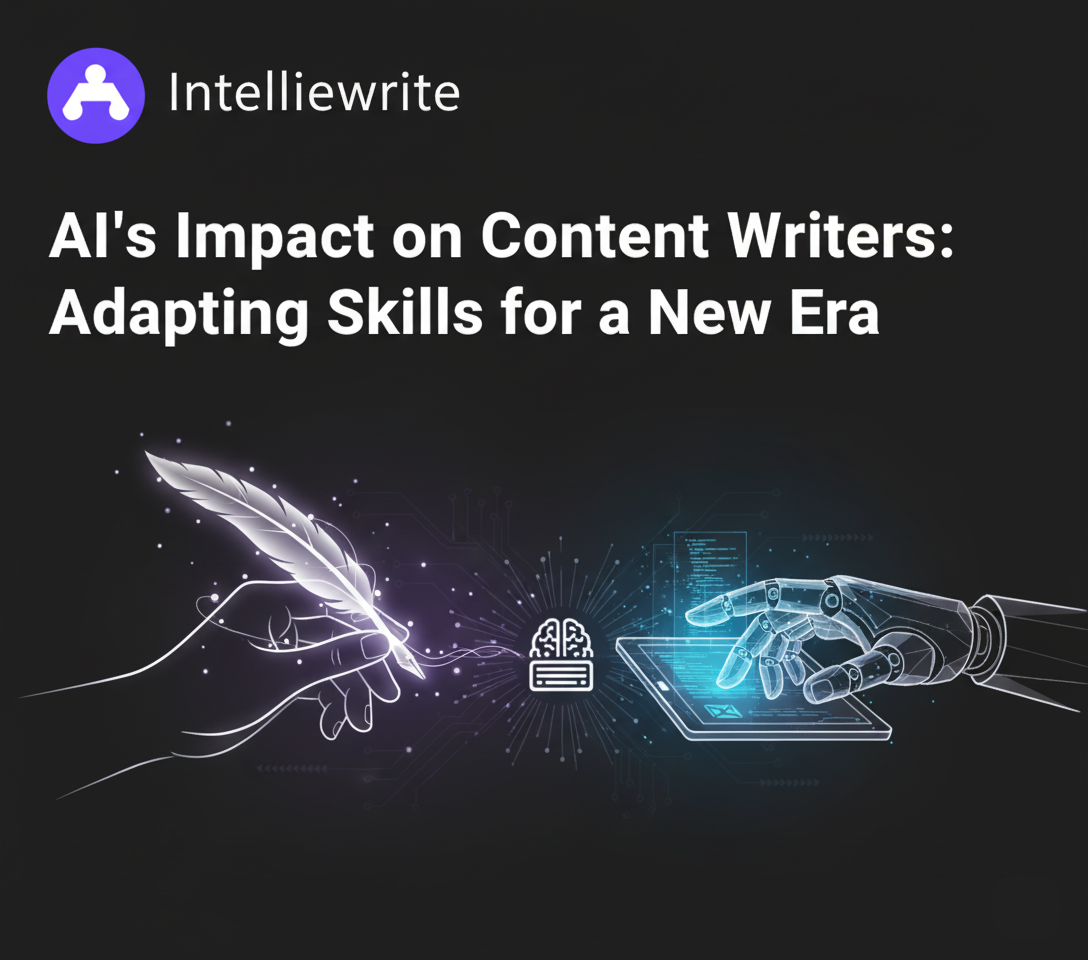
AI's Impact on Content Writers: Adapting Skills for a New Era | Intelliewrite
Introduction
Imagine this: you’re a seasoned content writer, sitting at your desk, pen poised above paper—or fingers hovering over a keyboard. The familiar thrill of crafting engaging copy is palpable. But suddenly, a disquieting thought creeps in: Am I becoming obsolete? As artificial intelligence (AI) continues to evolve, many writers share this fear. The landscape of content creation is shifting, and it’s crucial for writers to adapt their skills to thrive in this new era.In this article, we will explore how the roles of content writers are transforming in the age of AI. We will delve into the shift in content creation from traditional roles to curators, examine the pros and cons of AI-generated content, discuss essential new skills, and outline best practices for collaborating with AI. Let’s embark on this journey to understand how writers can leverage tools like Intelliewrite, the ultimate AI creator and content editor, to enhance their craft and remain relevant.
Overview of Traditional Roles of Content Writers
Traditionally, content writers were storytellers, researchers, and marketers all rolled into one. Their roles included:- Crafting Original Content: Writers were responsible for generating unique ideas and turning them into engaging narratives or informative articles.
- SEO Optimization: Understanding keyword strategies to improve visibility on search engines was essential.
- Audience Engagement: Writers tailored their content to resonate with specific audiences, ensuring maximum impact.
Despite these responsibilities, writers often faced challenges, such as tight deadlines, writer’s block, and the pressure to constantly produce fresh ideas. The emergence of AI, however, is not just a threat but also an opportunity.
Crafting Original Content: Writers were responsible for generating unique ideas and turning them into engaging narratives or informative articles.
SEO Optimization: Understanding keyword strategies to improve visibility on search engines was essential.
Audience Engagement: Writers tailored their content to resonate with specific audiences, ensuring maximum impact.
The Shift in Content Creation
How AI Generates Basic Content: Pros and Cons
AI technologies can generate basic content at an astonishing speed. Tools like Intelliewrite's AI Writer allow users to create high-quality content 10x faster using over 70 pre-designed templates. Here are some pros and cons of AI-generated content.
Writers must now navigate this dual-edged sword. While AI can generate basic content, the role of the writer is shifting toward refining and enhancing what AI produces.
The Writer's Role in Refining and Adding Value to AI-Generated Content
AI’s strength lies in its ability to churn out content quickly, but it lacks the human touch that makes writing resonate. As a content writer, your job is not to compete with AI but to collaborate with it.- Refinement: Writers can take AI-generated drafts and polish them, adding depth, personal anecdotes, and emotional nuance.
- Contextualization: AI may create content based on algorithms, but it lacks the ability to understand current trends or cultural contexts. Writers can provide that vital layer.
- Quality Control: Ensuring that the content adheres to brand voice and messaging is essential. AI can draft, but it needs the human eye for detail.
Refinement: Writers can take AI-generated drafts and polish them, adding depth, personal anecdotes, and emotional nuance.
Contextualization: AI may create content based on algorithms, but it lacks the ability to understand current trends or cultural contexts. Writers can provide that vital layer.
Quality Control: Ensuring that the content adheres to brand voice and messaging is essential. AI can draft, but it needs the human eye for detail.
New Skills for the New Era
With AI altering the content landscape, writers must adapt by acquiring new skills.
Critical Thinking and Analysis: Evaluating AI Outputs
In the age of AI, critical thinking becomes paramount. Writers need to:- Evaluate AI Outputs: Not all AI-generated content is created equal. Writers should assess the quality, relevance, and coherence of the text, ensuring it meets the intended goals.
- Identify Gaps: Writers can pinpoint areas where AI-generated content falls short and fill those gaps with in-depth analysis and unique insights.
Evaluate AI Outputs: Not all AI-generated content is created equal. Writers should assess the quality, relevance, and coherence of the text, ensuring it meets the intended goals.
Identify Gaps: Writers can pinpoint areas where AI-generated content falls short and fill those gaps with in-depth analysis and unique insights.
Marketing and SEO Knowledge to Leverage AI Tools Effectively
Understanding marketing and SEO is more critical than ever. Writers should familiarize themselves with:- SEO Strategies: Knowing how to optimize AI-generated content for search engines ensures it reaches a broader audience.
- Content Marketing Trends: Staying updated on emerging trends allows writers to guide AI effectively, tailoring it to meet current consumer needs.
SEO Strategies: Knowing how to optimize AI-generated content for search engines ensures it reaches a broader audience.
Content Marketing Trends: Staying updated on emerging trends allows writers to guide AI effectively, tailoring it to meet current consumer needs.
Collaborating with AI: Best Practices
Writers can optimize their productivity and creativity by collaborating with AI strategically.
How to Use AI as a Brainstorming Partner
AI can serve as a powerful brainstorming ally. Here’s how:- Idea Generation: Use AI tools like Intelliewrite to generate a list of potential topics based on trending keywords or niche areas.
- Outlining: AI can help create detailed outlines, saving time and streamlining the writing process.
Idea Generation: Use AI tools like Intelliewrite to generate a list of potential topics based on trending keywords or niche areas.
Outlining: AI can help create detailed outlines, saving time and streamlining the writing process.
Ensuring Originality and Authenticity in Content
Even when using AI, it’s crucial to maintain originality. Here are some tips:- Personal Touch: Infuse personal experiences or insights to give AI-generated content a unique voice.
- Cite Sources: Incorporate reputable data or studies to back claims, ensuring the content remains credible.
Personal Touch: Infuse personal experiences or insights to give AI-generated content a unique voice.
Cite Sources: Incorporate reputable data or studies to back claims, ensuring the content remains credible.
